Mike Modro (NINE, Italy)
Vice President for Strategy Development
Nuclear Industrial and Engineering
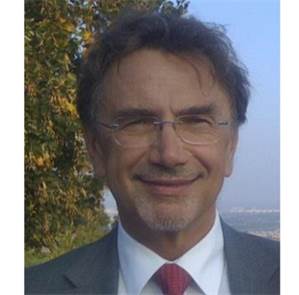
Mr. Mike Modro has over 40 years of experience in research and engineering, including over 30 years in Nuclear Reactor Design, Licensing and Safety Research. His field of expertise includes: Analyses and Research related to Nuclear Power Plant behavior during accident conditions; Assessment and Validation of various Computer Codes used to simulate nuclear plant behavior; Development and conduct of Experimental programmes in support of nuclear safety needs; Programme and line Management, Business and Resource development. He worked over 25 years within the Idaho National Laboratory (United States) and 6 years as Senior Safety Assessment Officer for the International Atomic Energy Agency (for whom he is currently a Senior Consultant). He is a Guest Lecturer for the Imperial College of London (UK). He has a background in Physics from the University of Bern (Switzerland) and the University of Warsaw (Poland).
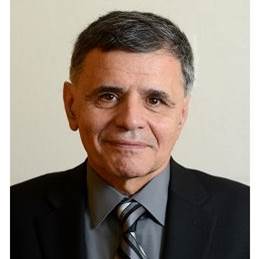
Professor Kostadin Ivanov has been working in the Nuclear field for over 34 years. His field of expertise includes: Reactor Physics; Methods in Static and Dynamic Analysis; Nuclear Power Plant Modeling and Safety; Fuel Management and Core Design; Verification and Validation of Multi-Physics simulations. He has worked over ten years for the Pennsylvania State University as Distinguished Professor including Graduate Coordinator of Nuclear Engineering Programme, and for two years as Visiting Professor at the Karlsruhe Institute of Technology, Department of Mechanical Engineering, in Germany. Since 2015 he is Professor and Department Head of the Department of Nuclear Engineering at the North Carolina State University (USA).
He was and currently is in charge as leading scientist of several international benchmarks organized under the umbrella of the Nuclear Energy Agency (NEA).
His work has been published on hundreds of academic and international journals and conference proceedings. He holds a PhD in Reactor Physics from the Bulgarian Academy of Science.

Since 1980 he has been member in several international working groups at ANS, EC,
IAEA and OECD/NEA including CSNI since 2015 and CSNI Senior Group of experts since 2017. He has been responsible for research projects valued more
than 20 Million Euro in the period 2000-2015. He was member and Chair of Technical Program in several International Conferences and member of the
scientific committee for a dozen Journals.Key awards and achievements are:
a) Recipient of Technical Achievement Award (TAA) by American Nuclear Society in 2021.
b) Enhancing and promoting the best use of computational tools in nuclear reactor safety including proposal of methods for validation, uncertainty,scaling and design of experiments, reliability of passive systems.
c) Editor and key Author of the Elsevier Book “Thermal Hydraulics of Water Cooled Nuclear Reactors”.
d) Coordinator-promoter-author of four State of Art Reports (SOAR) published by OECD/NEA: Two-Phase Critical Flow (TPCF) in 1980, Thermal-hydraulics of Emergency Core Cooling Systems (TECC) in 1987,
Boiling Water Reactor Stability (BWRS) in 1996, Scaling (S-SOAR) in 2017 and Reliability of Passive Systems (2020). e) Member of NEA scientific groups since 1980 (PWG-2, W-GAMA, etc.).

Dr Alessandro Petruzzi is President of the Board of Directors of Nuclear and INdustrial Engineering (NINE) since 2011. He received Ph.D. in Nuclear and Industrial Safety from University of Pisa where he worked on development of Uncertainty Methods for system thermal-hydraulics codes and application of BEPU methodology to Safety Analysis in Licensing framework. From 2007 to 2013 he acted as deputy manager of GRNSPG (University of Pisa) working on the preparation of Chapter 15 of FSAR of Atucha-2 NPP in Argentina. His current research concentrates on thermal-hydraulics, multi-physics methods for reactor safety analysis, forward and inverse methods for uncertainty quantification and he is member of several NEA working group both at NSC and CSNI. In 2013 he was the main organizer of NURETH-15 in Pisa.
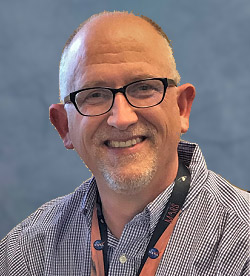
Dr. Robert Martin leads the development of evaluation methodologies for the design and
safety analysis of advanced reactor concepts at BWX Technologies, Inc.
Throughout his career in the nuclear industry, he has been responsible for the development and regulatory defense of several evaluation methodologies for the design and
safety nuclear power including the first licensing applications of best-estimate plus uncertainty methods to design-basis LOCA for both fuel and
containment evaluations and for demonstrating plant resiliency to beyond design-basis severe accidents. Most recently, he led the team that produced the
textbook “Design Basis Accident Analysis Methods for Light Water Reactor Nuclear Power Plants” (World Scientific, 2019).
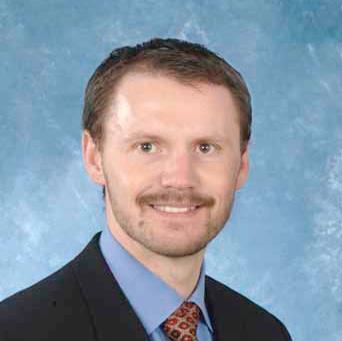
Dr. Timothy E. Valentine is the director of the Radiation Safety Information Computational Center (RSICC) As director of RSICC, he is responsible directing and expanding the services and operations of the center as well as being responsible for international collaborations with the Nuclear Energy Agency of the Organization for Economic Cooperation and Development (OECD-NEA) as well as Japanese Research Organization for Information Science and Technology (RIST). Dr. Valentine has twice served as a science and nuclear policy advisor in the U.S Senate on the Committee on Energy and Natural Resources and for Senators Bingaman and Alexander. Dr. Valentine has held various line, program management and technical research positions with a focus on energy R&D and nuclear safety, security and nonproliferation.
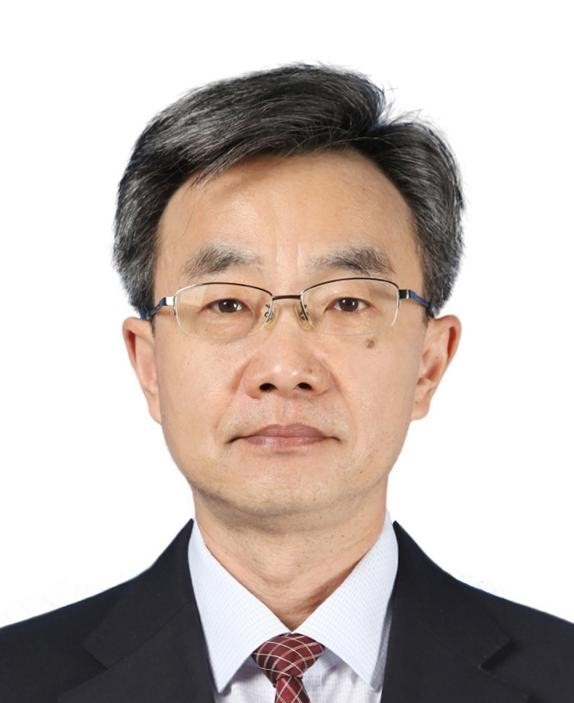
Mr. XING Ji is the Chief Expert of China National Nuclear Corporation and the Chief Designer of China’s the Gen-III 1,000MW PWR Nuclear Power Plant, “Hualong One”. He has served as the Chief Engineer of China Nuclear Power Engineering Co., LTD and successively presided over the design of Ling'ao Phase II project, the research and development of CP1000 and Hualong One advanced nuclear power technology. He has extensive experience in nuclear power design, technical R&D, and project management. Over a hundred nuclear science and technology professionals were cultivated by him, and the team led by him has been honored as the National Excellent Engineer Team. He himself was honored with the title of National Outstanding Science and Technology Worker and the National Innovation Award.
Dr. A. Petruzzi (NINE, Italy)

Dr Alessandro Petruzzi is President of the Board of Directors of Nuclear and INdustrial Engineering (NINE) since 2011. He received Ph.D. in Nuclear and Industrial Safety from University of Pisa where he worked on development of Uncertainty Methods for system thermal-hydraulics codes and application of BEPU methodology to Safety Analysis in Licensing framework. From 2007 to 2013 he acted as deputy manager of GRNSPG (University of Pisa) working on the preparation of Chapter 15 of FSAR of Atucha-2 NPP in Argentina. His current research concentrates on thermal-hydraulics, multi-physics methods for reactor safety analysis, forward and inverse methods for uncertainty quantification and he is member of several NEA working group both at NSC and CSNI. In 2013 he was the main organizer of NURETH-15 in Pisa.
Dr. M. Cherubini (NINE, Italy)
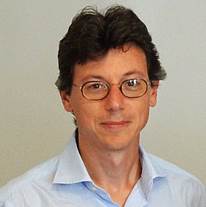
Dr. Marco Cherubini is the Vice-President of NINE and current Head of the Core Behavior Area devoted to prediction and analysis of NPP core by different disciplines viewpoint. Prior to join NINE, he worked over 7 years in the Nuclear Research Group of San Piero a Grado (GRNSPG) being responsible for System Thermal-Hydraulics simulations. He got his PhD Degree in “Nuclear and Industrial Safety” Course of the “Leonardo da Vinci” Doctoral Engineering School in 2008, discussing a thesis dealing with Accident Management in VVER-1000. In the last three years Nuclear fuel behavior became his first priority topic of interest, continuing its involvement in thermal hydraulics activities. He is taking part at different International OECD-NEA and IAEA activities including code benchmarking, noticeably for the nuclear fuel.
Dr. D. De Luca (NINE, Italy)

Domenico De Luca was born in Naples, Italy in 1985. He graduated from the University of Pisa with a degree in Industrial and Nuclear Safety Engineering in 2008. He got the Master degree in Nuclear and Industrial Safety Engineering at the University of Pisa in 2013, with a thesis related to the analysis of the thermal hydraulic system response of a PWR during LOCA and core blockage scenarios. During his master degree, he was a research assistant at the Nuclear Research Group of San Piero a Grado (GRNSPG) led by Prof. F. D’Auria at University of Pisa. Then, he spent 8 months in internship at the Nuclear Engineering Department of Texas A&M University as non-affiliated student technician II, under the supervision of Prof. Y. A. Hassan. Currently he is a senior engineer at the Nuclear and Industrial Engineering (NINE) in the plant thermal hydraulics area. Ha has 12 years of experience in using system thermal hydraulics codes (RELAP5, RELAP5-3D) and 2 years of experience in neutron kinetics (PARCS) and lattice physics (HELIOS) codes. His activities are focused on system thermal-hydraulic and coupled thermal-hydraulic/neutron-kinetic codes application for safety analysis of nuclear installations, including nuclear power plant, research reactor, separate effect and integral test facilities. In addition, he has experience in developing and application of qualification procedure for verification and validation purpose of both system codes and developed evaluation models as well as in application of best estimate plus uncertainty methodology for performing safety analysis. Finally, from 2015 he has experience as RELAP5 code instructor in several training courses (i.e. 3D S.UN.COP, MMARS, NRHOT).